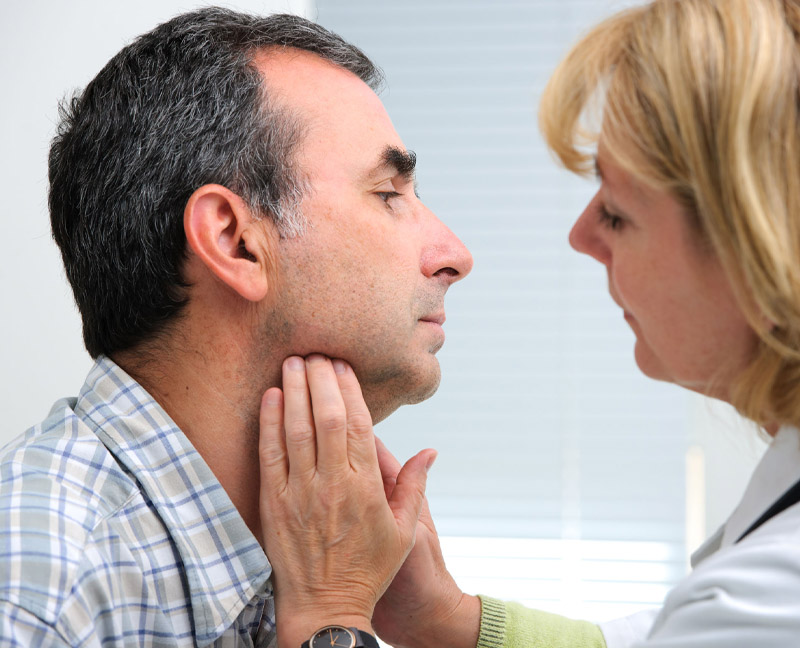Protecting Your Future Self: Why Midlife Is the Time to Prioritize Your Health

As we move through our 40s, 50s, and 60s, we often begin to notice unexpected changes in our bodies. These changes can feel sudden—but according to Physician Assistant Julianne Jackson, PA-C, of Shore Physicians Group in Mays Landing, they’re usually the result of long-term shifts that have been quietly taking place in our bodies for years.
“Midlife is when people tend to get their wake-up call,” Jackson says. “They’ve felt great for decades, and then all of a sudden, they notice joint pain, trouble sleeping, or low energy. But it’s not just aging—it’s the body asking for more care.”
What’s Really Happening Inside?
One of the major behind-the-scenes changes is a slowdown in cellular regeneration. As Jackson explains, “Your body just doesn’t repair itself as efficiently. Cells don’t turn over as quickly, so recovery takes longer, and damage accumulates faster.”
This affects everything from skin and muscle to major organs like the kidneys and heart—especially if risk factors like high blood pressure or high cholesterol have gone unmanaged. Hormonal changes also become more noticeable during this stage of life. Women may experience perimenopause or menopause, bringing mood swings, metabolism changes, and sleep disruptions. Men, too, experience gradual hormonal shifts, which can affect muscle mass, energy, and libido.
But these changes don’t mean decline is inevitable. In fact, Jackson says midlife can be a powerful time to reset and focus on your long-term health.
Start Sooner Than You Think
Many people assume they don’t need to worry about health screenings or preventive care until they’re older, but that’s a mistake, says Jackson. “If you wait until something feels wrong, it may already be advanced. Prevention starts years earlier.”
She encourages patients to get annual checkups, keep tabs on blood pressure and cholesterol, and talk with their provider about family history and risk factors. Routine regular screenings—like mammograms, colonoscopies, and prostate checks—can catch problems early when they’re most treatable.
Your Lifestyle Still Has the Biggest Impact
While screenings and checkups are important, your everyday habits remain the most powerful tools for healthy aging. Jackson emphasizes the importance of a nutrient-rich diet—especially one high in protein and leafy greens—and daily physical activity, including strength training to preserve muscle mass.
“Movement is medicine,” she says. “Medications like GLP-1s can be helpful for things like diabetes and weight loss, but they’re not a replacement for lifestyle. They don’t build muscle or teach you how to eat for long-term health.”
Reducing sugar and processed foods, staying hydrated, and avoiding smoking and excessive alcohol can also have a dramatic impact on how you feel—and how you age.
Don’t Overlook Mental Health
Midlife is often a time of intense pressure, especially for people caring for children, aging parents, or both. Jackson frequently sees patients—especially women and high-achieving professionals—who are burned out but haven’t prioritized their own well-being.
“You can’t pour from an empty cup,” she says. “Mental health is just as important as physical health. Talk to your provider. Be honest about how you’re feeling.”
Regular mental health check-ins, stress management, and self-care are essential tools for long-term health and happiness.
It’s Never Too Late to Start
No matter where you’re starting from, Jackson wants patients to know they’re not too late. She’s seen people in their 40s, 50s, and 60s make meaningful changes—losing weight, managing chronic conditions, and feeling better than they have in years.
“You didn’t miss your chance,” she says. “Every step you take—whether it’s eating better, walking more, or finally making that doctor’s appointment—makes a difference.”
The choices you make now will shape your future. Take care of the version of yourself you haven’t met yet. They’ll thank you for it.
Julianne Jackson, PA-C, treats patients ages 16 and older at Shore Physicians Group’s Mays Landing office, located at Festival At Hamilton Shopping Plaza, 4450 Black Horse Pike, Mays Landing, NJ. Appointments can be made by calling 609-365-6217 or online here.